| Award Ceremony Highlights |
|---|
* Information concerning affiliation/post/profile of the laureate and guests is current at the time he/she received the prize.
Award Ceremony Highlights: Honda Prize 2009
November 17, 2009, Imperial Hotel Tokyo
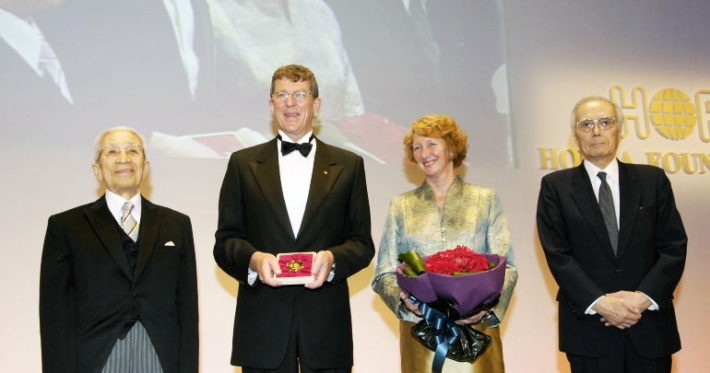
(from right to left)
Mr. Yamamuro/ Vice President of Honda Foundation Dr. & Mrs. Ian Frazer, Mr. Kawashima/ President of Honda Foundation
Mr. Yamamuro/ Vice President of Honda Foundation Dr. & Mrs. Ian Frazer, Mr. Kawashima/ President of Honda Foundation
The 30th Honda Prize ceremony was held on Tuesday, November 17, at the Imperial Hotel Tokyo, with 240 participants and guests from the German Embassy, policy makers, scholars, researchers and media people.
This year’s laureates was Dr. Ian Frazer, Director, Diamantina Institute for Cancer, Immunology and Metabolic Medicine, the University of Queensland, Princess Alexandra Hospital, Australia for his contribution to the development of the world’s first cervical cancer vaccines.
This year’s laureates was Dr. Ian Frazer, Director, Diamantina Institute for Cancer, Immunology and Metabolic Medicine, the University of Queensland, Princess Alexandra Hospital, Australia for his contribution to the development of the world’s first cervical cancer vaccines.
Movie of The Laureate
Dr. Ian Frazer’s Commemorative Lecture:
“Cancer prevention through immunisation Past, Present and future”
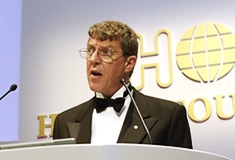
Dr. Ian Frazer
Cancer is a challenge for the 21st Century. "Human Papilloma Virus" (HPV) associated cancer can be prevented through vaccination; that we can prevent cervical cancer at the moment through universal immunization; that vaccines are not therapeutic for existing infection although we are developing these at the moment and therefore administration of these for cervical cancer is best for pre-teen boys and girls and we need to carry on screening but the big challenge is to get these vaccines into the developing world where they are really needed. Immunotherapy routinely for papillomavirus infection we require significant and heroic intervention which would not be acceptable for pre-malignant disease. On the other hand it can be used as a proof of principle to demonstrate that a prophylactic vaccine might be effective against skin cancer. Similar strategies for the other infections associated with cancer will be necessary to enable effective prevention of the cancers through immunization.
Congratulatory Addresses by Guests of Honor
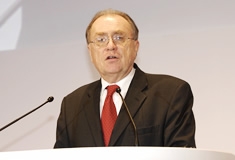
- His Excellency Mr. Alistair Murray McLeanAmbassador of Australia to Japan
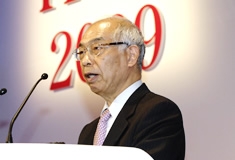
- Dr. Tadao Kakizoe, M.D.President, Cancer Society / PresidentEmiritus, National Cancer Center
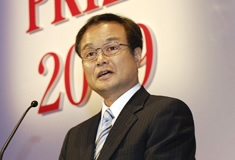
- Mr. Takanobu ItoPresident & CEO, Honda Motor Co., Ltd.






